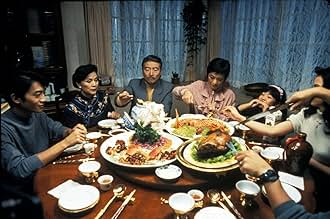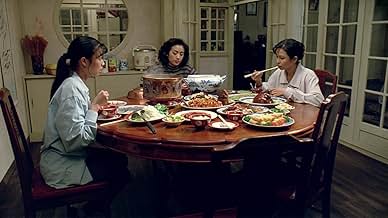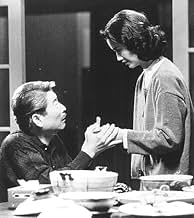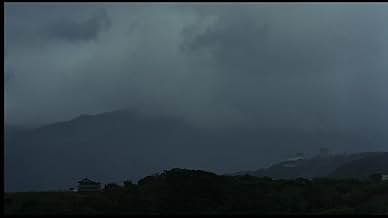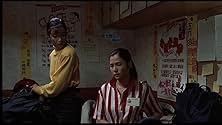AVALIAÇÃO DA IMDb
7,8/10
24 mil
SUA AVALIAÇÃO
Um chef sênior vive com suas três filhas adultas; a do meio tem seus planos futuros afetados por eventos inesperados e pelas mudanças de vida dos outros membros da casa.Um chef sênior vive com suas três filhas adultas; a do meio tem seus planos futuros afetados por eventos inesperados e pelas mudanças de vida dos outros membros da casa.Um chef sênior vive com suas três filhas adultas; a do meio tem seus planos futuros afetados por eventos inesperados e pelas mudanças de vida dos outros membros da casa.
- Direção
- Roteiristas
- Artistas
- Indicado a 1 Oscar
- 6 vitórias e 15 indicações no total
Wang Yu-wen
- Jia-Ning
- (as Yu-Wen Wang)
Chen Chao-jung
- Guo Lun
- (as Chao-jung Chen)
Ah-Lei Gua
- Madame Liang
- (as Ya-Lei Kuei)
- Direção
- Roteiristas
- Elenco e equipe completos
- Produção, bilheteria e muito mais no IMDbPro
Avaliações em destaque
I came across Yin Shi Nan Nu just by chance, when one day I was sorting DVD's in my local store. I was curious about the name in Spanish, and I have seen other movies by Ang Lee, but I have never repented for my sudden decision to take the movie home. This is a brilliant portrait of a family on the verge of being torn apart by their personal differences and the ominous presence of modernity, which has started to undermine the roots of the traditional Taiwanese family life. The presence of traditional Chinese Cuisine, in which Chu is both a master and the heir to hundreds of years of knowledge, serves as the perfect background to place the characters, as a metaphor for a way of life that is quickly disappearing, threatened by fast food and changes in family values. The director does not, however, focuses on mellow or sweetened scenes to show the conflict, but he maintains a humorous tone throughout the movie, placing the actors' performances on subtle gestures and witty lines which rely heavily on understatement and comedy-like situations. The basic premise of the movie suggests that change is not only inevitable but also necessary. However, the old values still need to be cherished and passed on to the next generation since they are the foundations which give sense and meaning to a life which tends to assimilate happiness to disposable items and economic success. In doing so, Chu and her daughters get reconciled, as well as their traditional background comes to terms with modernity.
The well-traveled metaphor of food as communication is given a tender, appealing treatment in Ang Lee's finely observed film about a widower whose aging and loneliness have caused him to lose touch with his three grown daughters, each of whom is looking for love in modern-day Taiwan. The father (a gallant Sihung Lung) is a master chef who has begun to lose his sense of taste while attempting to come to grips with his daughters' increasing independence and the failing health of his best friend (Jui Wang); he begins to question the basis of existence, namely love and food. The daughters, meanwhile, feeling cramped by their father's distance, begin to explore notions of freedom from their cramped quarters. Lee is in a positive, sympathetic frame of mind here, articulately exploring the theme of alienation that he would later revisit with a much more gloomy perspective in `The Ice Storm' and though the film holds virtually no surprises, it is a stylistic success, easy to like and moving effortlessly with a superior sense of rhythm; it's always pleasing, even when the content feels overly familiar. He demonstrates a healthy respect for his characters (with the exception of a divorcee whose bitter views of marriage don't stop her from pursuing Lung)--everyone gets to play out their lives with dignity and happiness and without an ounce of filmmaker moralizing.
By now, Ang Lee is best known for "Crouching Tiger, Hidden Dragon", "Brokeback Mountain" and "Life of Pi". If you're not familiar with his earlier work, it's worth checking out. Key among it is 1994's Academy Award-nominated "Yǐn shí nán nǚ" ("Eat Drink Man Woman" in English). I understand that this was part of what has become known as Lee's Father Knows Best trilogy. In this case, an aging chef in Taipei tries to come to terms with the different career paths that his daughters have chosen.
Without a doubt, the best part of the movie is seeing the food prepared. The opening scene shows the father preparing a feast for himself and his daughters. And boy does he put in a LOT of effort! But as the movie progresses, it becomes clear that the meals are only half the story. There's also the events in the characters' lives, as they seek out relationships. Might it also be time for the father to seek out a relationship?
This is definitely one that I recommend. As I read somewhere, the assortment of food representations life: there's a lot available, but you have to decide what you'll choose. A fine one. Another one of Lee's good movies is "The Ice Storm" (a downer if there ever was one).
Without a doubt, the best part of the movie is seeing the food prepared. The opening scene shows the father preparing a feast for himself and his daughters. And boy does he put in a LOT of effort! But as the movie progresses, it becomes clear that the meals are only half the story. There's also the events in the characters' lives, as they seek out relationships. Might it also be time for the father to seek out a relationship?
This is definitely one that I recommend. As I read somewhere, the assortment of food representations life: there's a lot available, but you have to decide what you'll choose. A fine one. Another one of Lee's good movies is "The Ice Storm" (a downer if there ever was one).
There is usually nothing that gets me away from my newspapers on a Sunday Morning. I usually spend several hours on my back porch immersed in news and entertainment. I flipped on the TV to see what was happening in the third round of the Masters and I noticed a movie on the Indie channel that I hadn't seen and it looked interesting. Big mistake! It Was And Lee's Yin shi nan nu (Eat Drink Man Woman). The paper got put aside as I couldn't tear my eyes away from the story. It was captivating, to say the least. How a widowed father deals with three daughters was the classic relationship film.In addition, the subplot, how everyone was doing something that they thought was "what was expected," instead of what they really wanted to do was a simple definition of life out of balance. Only when life is in balance can you taste the spice. You'll have to invest some time in watching this great film to understand that fully, and it will be time well spent.
This movie is a visually sumptuous confection served up by Ang Lee as a follow-up to The Wedding Banquet.
While some people may be put off that the film is in Mandarin with subtitles (and the DVD does not have a dubbing option), the film is so strong visually that you forget about the subtitles and just admire the thoroughly delightful story.
I found the film's theme very interesting...that life constantly surprises, especially if one opens themselves up to life's possibilities.
Nothing in this film plays out like you expect it to. It is the single common thread between the multiple story lines. If this film has a flaw it is that too many of the changes happen too suddenly, without an examination of the processes that led to the sudden developments.
The food scenes in this film are to die for. In this case, as opposed to being a primarily carnal sensual experience as it is in films like "Chocolat" and "Like Water For Chocolate," food also takes on a rhythmic intensity and meter here. There is amazing energy and balance displayed in the preparation and presentation of the meal. Sort of like Feng Shui for the tummy.
Bon Appetit.
While some people may be put off that the film is in Mandarin with subtitles (and the DVD does not have a dubbing option), the film is so strong visually that you forget about the subtitles and just admire the thoroughly delightful story.
I found the film's theme very interesting...that life constantly surprises, especially if one opens themselves up to life's possibilities.
Nothing in this film plays out like you expect it to. It is the single common thread between the multiple story lines. If this film has a flaw it is that too many of the changes happen too suddenly, without an examination of the processes that led to the sudden developments.
The food scenes in this film are to die for. In this case, as opposed to being a primarily carnal sensual experience as it is in films like "Chocolat" and "Like Water For Chocolate," food also takes on a rhythmic intensity and meter here. There is amazing energy and balance displayed in the preparation and presentation of the meal. Sort of like Feng Shui for the tummy.
Bon Appetit.
Você sabia?
- CuriosidadesThe opening sequence - in which a Sunday lunch is lovingly prepared - took over a week to film.
- Erros de gravaçãoAs Chu is downing shots at the last Sunday dinner, he spills some on the collar of his jacket. When he stands up to makes his announcement, the stain is gone.
- Trilhas sonorasAve Maria
Composed by Giuseppe Verdi
Performed by The Westminster Choir
Courtesy of Chesky Productions, Inc.
Principais escolhas
Faça login para avaliar e ver a lista de recomendações personalizadas
Detalhes
- Data de lançamento
- Países de origem
- Idiomas
- Também conhecido como
- Comer, beber, amar
- Locações de filme
- Empresas de produção
- Consulte mais créditos da empresa na IMDbPro
Bilheteria
- Faturamento bruto nos EUA e Canadá
- US$ 7.294.403
- Fim de semana de estreia nos EUA e Canadá
- US$ 155.512
- 7 de ago. de 1994
- Faturamento bruto mundial
- US$ 7.294.403
- Tempo de duração
- 2 h 4 min(124 min)
- Cor
- Mixagem de som
- Proporção
- 1.85 : 1
Contribua para esta página
Sugerir uma alteração ou adicionar conteúdo ausente


